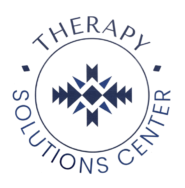— Welcome
Stages Of Therapy
Stages of Therapy
What Are The Stages Of Therapy I Can Expect?
While there are many interpretations of stages or phases of therapy online, this is a brief summary of what you can expect from counseling with us. The time involved in each of these stages varies with each person depending on the extent of symptoms, the complexity of their illness, and their ability to participate in treatment.
Action/Initiation:
You make the decision to get help and take action to start the conversation with a therapist.
Initial Assessment/Discovery: The first few sessions we will be getting to know and trust each other and feel comfortable working together. The therapist guides this part by asking you questions about what brings you to seek help, explores your family history, what is going on in your life now, and how you have managed so far, so that we can understand your challenges better.
Goal Setting: We begin to identify and set some goals for treatment and then prioritize these based on your preferences.
Intervention/Knowledge/Skill Building: We do some psychoeducation so that you understand what is going on in your mind and body and ways we can change some unhelpful thoughts or behavior patterns. We begin to practice interventions that will help you to feel better, be more confident, and be better able to manage future challenges. We work on one issue at a time and then once one feels resolved, we move on to the next one.
Evaluation: Together, we work closely to evaluate the progress made in therapy and make any necessary adjustments. Although, oftentimes the therapist will check in with you during a session to assess if the therapy is working for you. You are always encouraged to let the therapist know if you need something, or if the therapy is not working for you.
Independence/Ending: At some point in treatment, you will begin to feel that you can manage on your own. You will know this because you will have acquired and established a regular practice using many skills, tools and behaviors that you practiced in therapy. These practices are helping you manage your thoughts, emotions and behaviors on a daily basis. You will feel you have greater self-awareness and awareness of others. You will also have strategies to communicate your needs more clearly. You will also be able to set boundaries. You will discuss how to maintain the new skills and strategies that have been developed moving forward.
Contact Us
If you are ready to take the first step in your journey to better mental health, contact us today to schedule your TeleHealth appointment.
